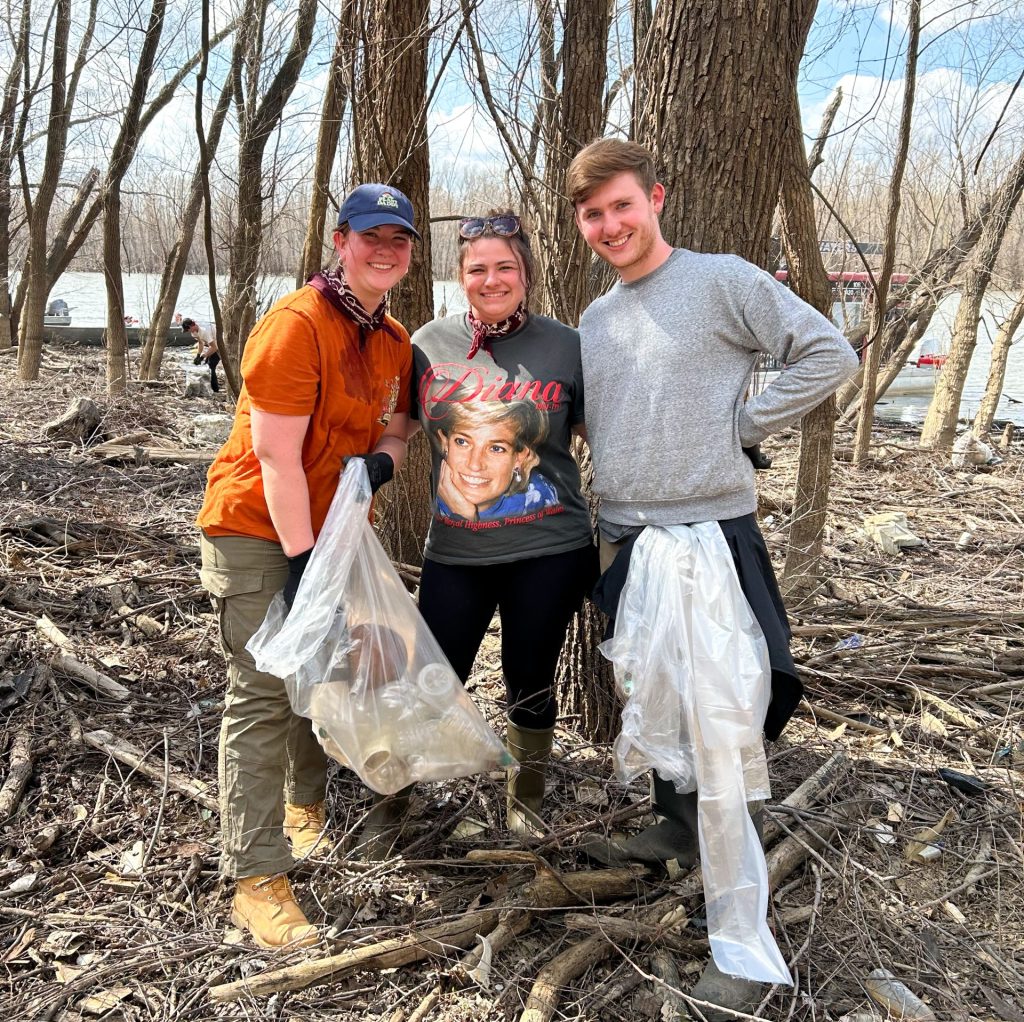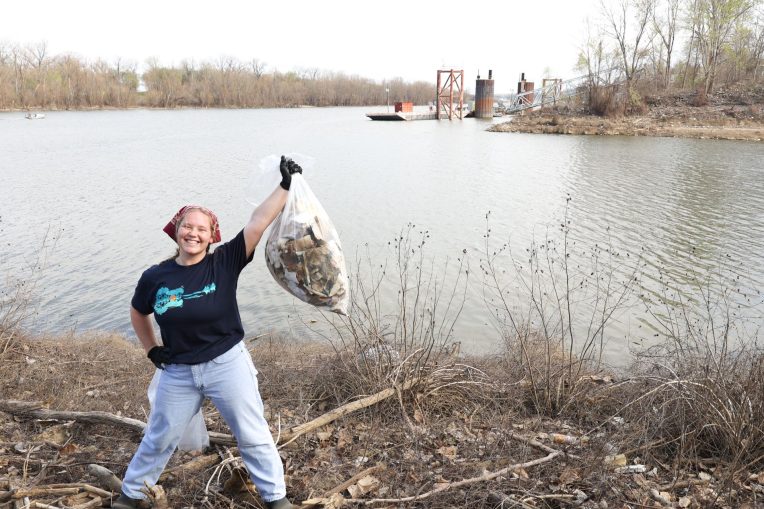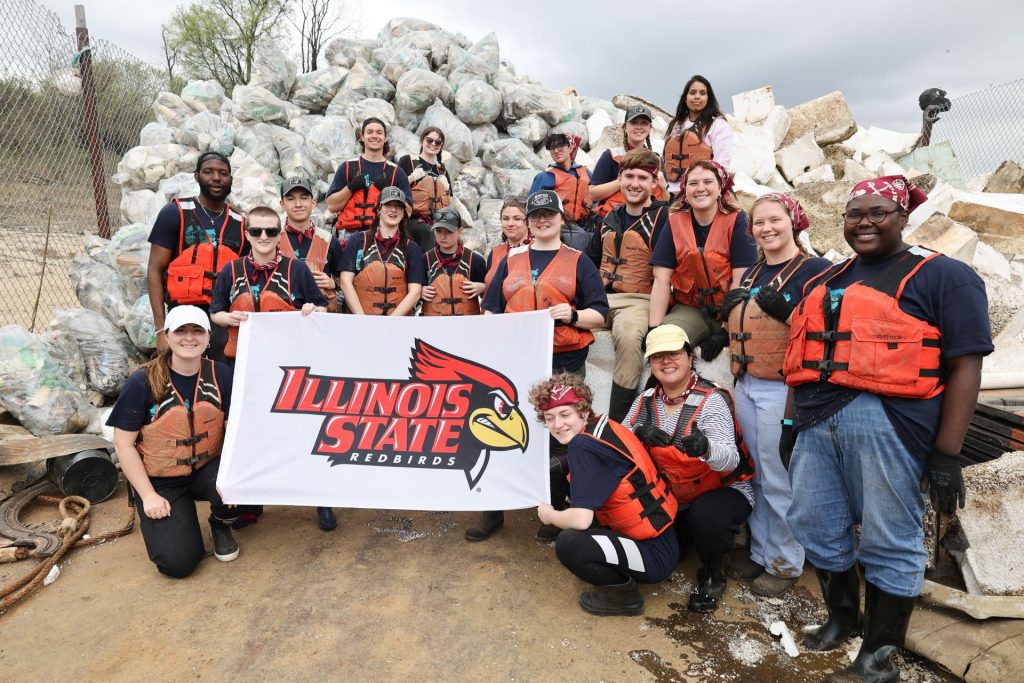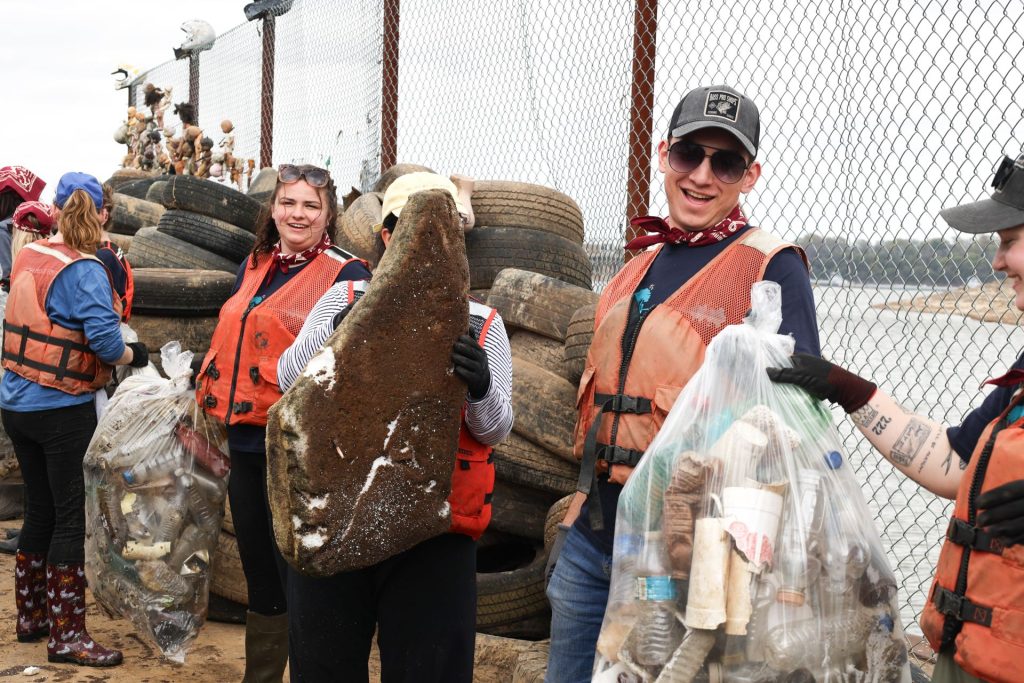The power of teamwork was on full display during Illinois State’s Alternative Spring Break trip to Memphis, Tennessee, where students worked with Living Lands & Waters (LL&W) to collect 46,032 pounds of trash in four days.
Here’s the breakdown of trash pulled from McKellar Lake, which feeds into the Mississippi River, by 21 Illinois State students, faculty, and staff members, and students from other universities:
- Day one: 13,590 pounds
- Day two: 11,384 pounds
- Day three: 11,100 pounds
- Day four: 9,958 pounds
Alternative Spring Break (ASB) is a weeklong service opportunity during the University’s spring break in which volunteers travel to communities across the country and world to help meet a need. Since becoming a student organization in 2000, nearly 1,000 students have participated in ASB, which includes a cleanup trip with LL&W at McKellar Lake in Memphis.
Kelly Hasselbring, the Alternative Breaks coordinator, said ASB trips offer students the opportunity to become civically engaged.
“Research shows that community-based civic engagement in higher education increases social responsibility, improves intellectual and practical skills, and increases career-related skills,” said Hasselbring. “Alternative Breaks gives students the opportunity to feel empowered to take action and realize they have the ability make a difference in the world they live in.”
Headquartered in East Moline, LL&W has grown over the past 25 years to become the only “industrial strength” river cleanup organization like it in the world.
During Illinois State’s recent ASB trip to McKellar Lake, March 11-15, volunteers met at the marina each morning by 9 a.m. and took small boats to various locations along the lake where they picked up trash until approximately 11:30 a.m. Once lunchtime hit, everyone headed to the classroom barge.
Students ate and relaxed for an hour before they hopped the gap between the classroom barge and trash barge, formed a passing line, and piled the trash they collected from that morning. Once the trash was piled high, it was back on the boats to a new pickup location for the afternoon. After regrouping at the marina around 3:30 p.m., students returned to the hotel for dinner and reflection.
Despite the hard work, most students, including Morgan Schurtz, said it was worth it to see the result.
“When we roll up to the shore and see how many bottles and different pieces of trash are laying everywhere, it really seems insurmountable,” said Schurtz, a graduate student in the college student personnel administration program. “But it’s incredible seeing the difference that just two hours can make.”
Luke Seymour, an international business major and East Asian studies minor, said his favorite takeaway was getting to know the other students from Illinois State, the LL&W staff, and students from other universities.
“The camaraderie that I’ve been able to build with not only people from ISU, but the Living Lands & Waters team and the other universities has been great,” said Seymour. “Even though it’s only a week-long event, I think we all just bond over our passion for sustainability and picking trash out of the lake.”

Volunteers also learned about water conservation, sustainability, and how our daily actions impact the environment around us through educational sessions and conversations with LL&W crew members.
During an educational session with the volunteers, Mike “Coach” Coyne-Logan, the educational facilitator for LL&W discussed how participants can build from the experience and make an impact in their own communities through neighborhood cleanups.
“Eighty percent of the stuff that ends up in our waterways starts out as litter in our communities,” said Coyne-Logan. “Doing little cleanups in your community makes a difference.”
Addressing the group of volunteers, Coyne-Logan prompted students to think beyond recycling and focus on reducing the number of single-use products they use daily.
“We’re taught as a society, recycle, recycle, recycle, but there’s something more important than that,” said Coyne-Logan. “Reducing. We use way too much plastic and only about nine to 10 percent of plastic that gets produced, gets recycled.”
Conversations like this one with Coyne-Logan made a lasting impact on many of the students on the trip, including Julissa Argomaniz, an environmental science and sustainability major.
“I believe more people should participate in Alternative Spring Break because experiencing these issues firsthand has a profound impact,” said Argomaniz. “Our ignorance arises from the ’out of sight, out of mind‘ approach, which limits our understanding of the issues that exist.”
Students on the trip said they gained a more open, educated mind and solidified their commitment to making the world a better place.
“Ultimately, we want our planet to be livable for as long as possible,” said Schurtz. “Without making changes, we can’t really guarantee a future for ourselves. Not only do we want to make sure our water is clean, we need to make sure we’re being thoughtful about the kinds of products we’re using.”



